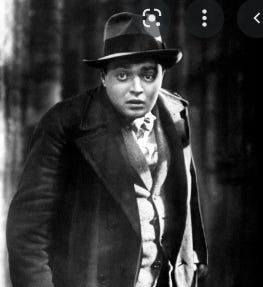“What does the Philadelphia DA do now?” The Atlantic wants to know.
I’m guessing, continue getting reelected? American pundits can’t grasp the fact that the Chesa Boudin recall was rooted in the highly specific dynamics of San Francisco.
“But SF is the most progressive left wing place in America!” No, it’s not. It’s flush with real estate and tech cash. It’s geographically small, so the moneyed can’t avoid homeless encampments. California’s recall system is uniquely insane. The Philly version of the Tenderloin, Kensington, is way up in North Philadelphia. Rich people have no reason to go there.
Perhaps this is why The Atlantic, which is based in New York, wrote story after story after story about Boudin. Nellie Bowles braved the streets of San Francisco to tell us the truth about the failure of progressivism, as personified by Boudin. The Atlantic’s Annie Lowrey litigated the “case” against Boudin. Olga Khazan, for the Atlantic, profiled ridiculous clown Michael Shellenberger as a Boudin foil.
Now that Boudin is out though, and violent crime has shot up under his successor Brooke Jenkins, the Atlantic concern-trolling about reform DAs is picking up shop and moving the Philly, complete with a sinister black-and-white illustration of Larry Krasner that makes him look like Peter Lorre in M.
To Ron Brownstein’s credit he presents a full QA. But before we hear from Krasner there’s roughly a thousand words framing him—and the reform prosecutor movement—as embattled.
Yet, like other progressive prosecutors in major cities from New York to Chicago to Los Angeles to San Francisco, his political position remains precarious. These prosecutors received a huge burst of momentum from the nationwide protests that erupted after the murder of George Floyd in 2020. And they have an aggressive agenda aimed at reducing jail and prison populations, elevating alternatives to incarceration (particularly for juvenile offenders), emphasizing community services over tough enforcement to reduce gun violence, and imposing greater accountability for police-officer misconduct. (Beyond Wednesday’s conviction, Krasner is pursuing murder cases against two other police officers; previously no murder case involving a Philadelphia police officer had gone to trial in almost 40 years, The Philadelphia Inquirer found.)
But rising crime rates have weakened these prosecutors’ standing. Though violent crime, particularly homicides, remains far below its peak, in the 1990s, the rates in many major cities spiked at the height of the pandemic to levels far above the totals earlier in this century—and have remained stubbornly high since. As of Monday, Philadelphia, for instance, has experienced 388 homicides this year, slightly more than in 2021 and double the number through that date as recently as 2015.
What these stories have in common is a casual, brief mention of the fact that tough-on-crime DAs often have far worse public safety records, followed by “Yet, ...” . That violent crime actually fell during Boudin’s tenure is slipped in casually, as if the writers are describing the color of his shirt.
Keep reading with a 7-day free trial
Subscribe to Substance to keep reading this post and get 7 days of free access to the full post archives.





